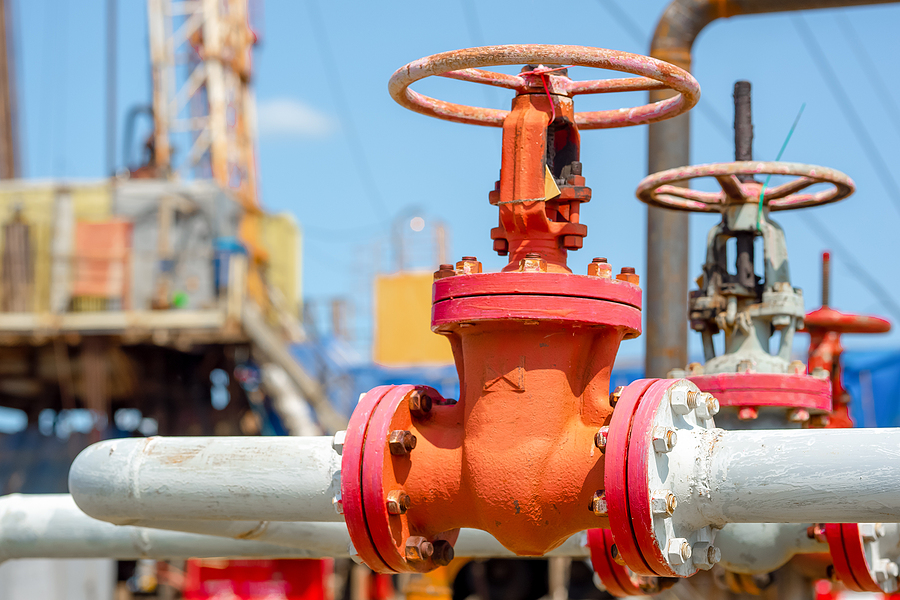Pipeline politics are back.
With President Joe Biden announcing he plans to cancel the Keystone XL pipeline from Canada into the Dakotas, there’s no mistaking that energy infrastructure issues— long promoted by President Trump — are back in play.
Against this backdrop, however, advocates of the PennEast pipeline are celebrating what they see as a major legal success — and hoping it’s the first of many.
The U.S. Supreme Court agreed last week to hear a complaint from the PennEast developers after the State of New Jersey overruled federal permits allowing the natural gas pipeline to cross into the state.
New Jersey had blocked the $1.2 billion pipeline by denying approval of easements on state properties that would carry Pennsylvania natural gas to a terminal in Trenton, N.J.
David Taylor, president of the Pennsylvania Manufacturers Association (PMA), hailed the court’s decision to pick up the case.
Natural gas is not only an energy source, but a key manufacturing source, a “new steel” for Pennsylvania’s manufacturers, according to Taylor.
The “steel,” Taylor said, that creates the “infrastructure that upholds our civilization.”
Beyond heating homes and providing the source fuel for electricity generation, natural gas is currently used to make products ranging from fertilizers to plastics, and even many of today’s fabrics. Early in the pandemic, for example, gas proponents were boasting that gas would be an essential component to the personal protective equipment that was needed, like N-95 masks.
PennEast is not a standalone company, but an energy consortium. The group appealed to the U.S. Supreme Court after the 3rd U.S. Circuit Court of Appeals sided with the New Jersey argument.
PennEast’s appeal argues that protections under the Natural Gas Act specifically intended that federally approved energy infrastructure projects would proceed over local objections, due to public need and benefits. The end uses of the delivered methane include home heating and cooking, electricity generation, and manufacturing and industrial applications.
The production from the Marcellus Formation in the northeast of the state requires no additional refining, according to Taylor, and the methane can go straight into commercial uses via the pipeline for industrial purposes as well as domestic heating and cooking applications.
The scale of the production, “how big this gas play is, the volume of natural gas we are talking about,” is staggering. Susquehanna County, for example, is the top gas producing county in the country, Taylor said.
Production of the key fuel and transportation across state lines via pipelines into the Northeast — New York and Boston — is hampered by environmental policies from political administrations that oppose the export of Pennsylvania’s natural gas. At the same time, these northeastern states rely on the fuel to get through cold New England winters.
The combination of increased demand for natural gas and opposition to pipeline expansion has resulted in the bizarre result of Pennsylvania gas being stopped at the New Jersey border while Russian tankers are carrying LNG to Boston harbor.
PennEast’s pipeline has received Federal Energy Regulatory Commission approval as an interstate project but legal resistance persists once the pipeline travels under the Delaware River into New Jersey. The state is withholding the permits for the pipeline to complete its course.
“The nature of the legal challenge is this: New Jersey says that it has the right to withhold the approvals for use of land. So, if the pipeline needs to go under, say a public park or game land or some other land that’s owned by the State of New Jersey or one of its political subdivisions, that they have the right to refuse eminent domain for the pipeline to be built,” Taylor explained.
That legal notion upends “fifty years of, more than that, of American interstate infrastructure,” said Taylor.
“There’s no basis in law for that, at all,” he added.
Opponents of the pipeline are just as certain that the law is on their side.
“The Third Circuit’s decision to halt taking of state-owned land by a private party in federal court was well-reasoned. It’s a position that should be upheld by the Supreme Court,” Tom Gilbert, campaign director, New Jersey Conservation Foundation and ReThink Energy NJ said in a statement.“The PennEast pipeline would threaten the health and safety of our communities, private landowners, taxpayer-preserved open space, our drinking water, and significant natural and historic resources. We remain committed to working with our allies in the community to stop this unneeded pipeline and will be following the Supreme Court’s deliberations closely.”
Taylor said the 3rd Circuit’s decision in favor of New Jersey and against the project “shocked” the project’s proponents, leading to the appeal to the United States Supreme Court. PMA as well as the New Jersey Business and Industry Association have filed amicus briefs and SCOTUS has granted a writ of certiorari and arguments in the case are expected in April 2021.
“We’re correct on the facts, we’re correct on the law,” argued Taylor. Being “pro-production, pro-deployment agenda on energy” doesn’t conflict with state and federal environmental rule-making, he continued.
“Manufacturing is the engine that drives our economy, manufacturing is the sector that adds the most value” to the economy, bringing “family-sustaining jobs” with above-average pay and benefits and sustain communities and their underlying tax base, Taylor added.
Manufacturers taking raw materials to finished goods requires a great deal of energy at each stage of production, with energy accounting for the largest portion of cost in most cases.
“Having abundant, available, reliable energy is very important,” he said, “to keeping manufacturing and industry going.”
That includes downstream customers in New Jersey whose industrial furnaces can only achieve high temperatures for glass production using natural gas, for example.

